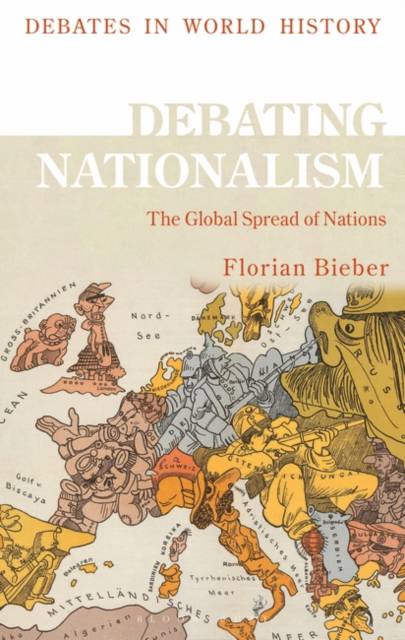
Bedankt voor het vertrouwen het afgelopen jaar! Om jou te bedanken bieden we GRATIS verzending (in België) aan op alles gedurende de hele maand januari.
- Afhalen na 1 uur in een winkel met voorraad
- In januari gratis thuislevering in België
- Ruim aanbod met 7 miljoen producten
Bedankt voor het vertrouwen het afgelopen jaar! Om jou te bedanken bieden we GRATIS verzending (in België) aan op alles gedurende de hele maand januari.
- Afhalen na 1 uur in een winkel met voorraad
- In januari gratis thuislevering in België
- Ruim aanbod met 7 miljoen producten
Zoeken
Omschrijving
This concise introduction offers an overview of the global rise and spread of nationalism since the late 18th century. Reflecting on key themes and existing scholarship it presents case studies and primary sources to track the emergence of the modern nation, and understand how nationalism has given rise to phenomena such as identity-based conflict, authoritarian politics and populist movements.
Debating Nationalism uses an inclusive perspective that goes beyond a Western European focus to explore how nationalism has expressed itself in nation states and influenced a range of political ideologies over the last 300 years. It engages with the key debates within nationalism studies such as the origins of nations, the mechanisms and actors that reinforce it and the dynamics of ethnic conflict. Using a historical lens to shed light on contemporary issues, it also considers debates around migration, diversity and authoritarian politics found in new nationalism in the modern day.
This book includes a dedicated chapter as a guide to key debates and further reading alongside a glossary of terms to help students achieve a holistic understanding of the history of nationalism.
Debating Nationalism uses an inclusive perspective that goes beyond a Western European focus to explore how nationalism has expressed itself in nation states and influenced a range of political ideologies over the last 300 years. It engages with the key debates within nationalism studies such as the origins of nations, the mechanisms and actors that reinforce it and the dynamics of ethnic conflict. Using a historical lens to shed light on contemporary issues, it also considers debates around migration, diversity and authoritarian politics found in new nationalism in the modern day.
This book includes a dedicated chapter as a guide to key debates and further reading alongside a glossary of terms to help students achieve a holistic understanding of the history of nationalism.
Specificaties
Betrokkenen
- Auteur(s):
- Uitgeverij:
Inhoud
- Aantal bladzijden:
- 256
- Taal:
- Engels
- Reeks:
Eigenschappen
- Productcode (EAN):
- 9781350098107
- Verschijningsdatum:
- 20/02/2020
- Uitvoering:
- Paperback
- Formaat:
- Trade paperback (VS)
- Afmetingen:
- 137 mm x 213 mm
- Gewicht:
- 317 g

Alleen bij Standaard Boekhandel
+ 101 punten op je klantenkaart van Standaard Boekhandel
Beoordelingen
We publiceren alleen reviews die voldoen aan de voorwaarden voor reviews. Bekijk onze voorwaarden voor reviews.









